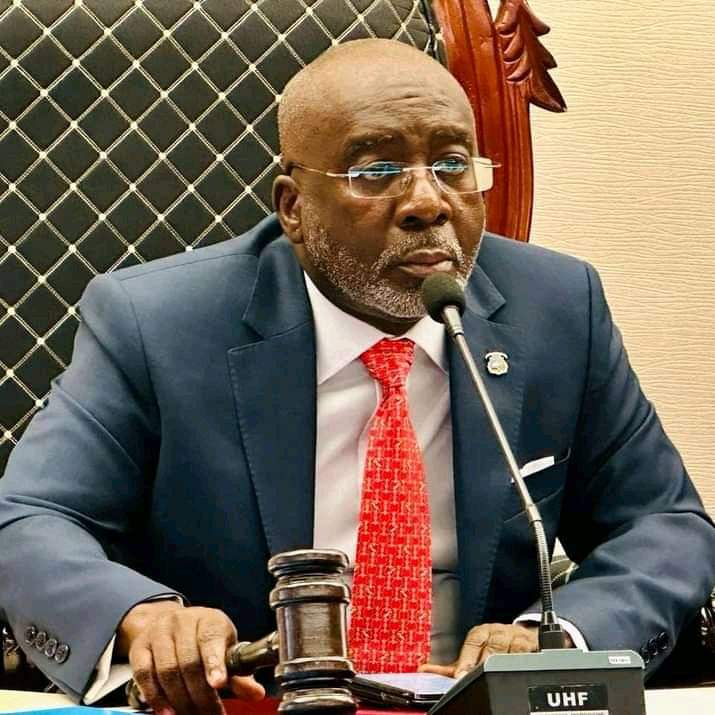The ongoing leadership crisis within the Liberian House of Representatives has taken a new turn with embattled Speaker J. Fonati Koffa challenging the executive branch’s interpretation of a recent Supreme Court ruling. Koffa, represented by Cllr. Arthur T. Johnson, has filed a Bill of Information with the Supreme Court, accusing Justice Minister and Attorney General, N. Oswald Tweh, of misinterpreting the court’s decision and exacerbating the legislative impasse. The Bill of Information specifically requests the court to publicly retract AG Tweh’s legal opinion, which asserted the legality of actions taken by the rival faction led by newly-elected Speaker Richard Koon.
The crux of Koffa’s argument centers on the Attorney General’s alleged misrepresentation of the Supreme Court’s ruling. Cllr. Johnson contends that AG Tweh’s opinion falsely claims the court validated the sittings, actions, and decisions of the Koon-led majority bloc. This misinterpretation, according to Koffa’s legal team, has emboldened the rival faction and further undermined the authority of the Supreme Court. The Bill of Information emphasizes that the Koon group’s continued convening and holding of unauthorized hearings, including budget hearings, are in direct violation of the court’s ruling, which declared such actions ultra vires and invalid.
Beyond the immediate dispute over the interpretation of the court’s ruling, the Bill of Information raises broader concerns about constitutional adherence and the rule of law in Liberia. Cllr. Johnson argues that the actions of Speaker Koon, Deputy Speaker Thomas Fallah, and other members of the majority bloc constitute contempt of court. He urges the Supreme Court to declare all actions taken by this group null and void, emphasizing the need to restore constitutional order and stability within the nation. The Bill of Information paints a picture of a legislative branch in disarray, with the ongoing power struggle threatening to undermine the very foundations of Liberia’s democratic processes.
The legal challenge also scrutinizes the role and responsibilities of the Attorney General. Cllr. Johnson argues that while the Attorney General is entitled to offer legal opinions, these opinions should not be presented as definitive interpretations of judicial decisions, especially when they contradict the clear pronouncements of the Supreme Court. He underscores the Attorney General’s duty to uphold the constitution and advise against any governmental actions that infringe upon the rights of citizens. By supporting the actions of the Koon-led bloc, Cllr. Johnson argues, the Attorney General has not only misrepresented the court’s ruling but also actively contributed to the deepening legislative crisis.
Cllr. Johnson invokes established legal principles to reinforce his arguments. He emphasizes the Supreme Court’s ultimate authority in interpreting the constitutionality of statutes and the actions of other branches of government. He cites the principle that once the Supreme Court declares a statute unconstitutional, that law immediately loses its validity and becomes null and void, regardless of any legislative action. He extends this principle to the Supreme Court’s interpretation of the actions of any branch of government, arguing that the Attorney General’s opinion cannot supersede the court’s ruling.
This latest development in the Liberian House of Representatives leadership crisis underscores the fragility of democratic institutions and the importance of upholding the rule of law. The Supreme Court’s response to Koffa’s Bill of Information will be crucial in determining the future direction of the legislative branch and the overall stability of Liberia’s political landscape. The court’s decision will not only resolve the immediate power struggle but also set a precedent for the interpretation of its rulings and the role of the Attorney General in navigating complex constitutional matters. The nation awaits the court’s decision with bated breath, as it will undoubtedly have far-reaching implications for the country’s governance and political future.














